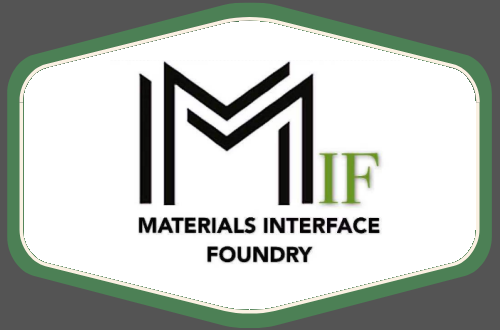
What is Materials Interfaces Foundry?
The Materials Interface Foundry (MIF) is a lab in the Mechanical and Mechatronics Engineering department, at the University of Waterloo. MIF focuses on research, design, and advanced manufacturing of novel materials interfaces for energy, climate, and electronics. About MIF
How can my business or industry partner with the Materials Interfaces Foundry?
Contact us. See our partner page for details
How do I find out about available positions in the Materials Interfaces Foundry?
Who leads MIF?
Professor Yimin Wu’s research focuses on the design of new energy materials for solar fuels and batteries, and novel electronic, photonic, responsive materials for flexible electronics and soft robotics, and energy efficient neuromorphic computing through a deep understanding of energy transduction processes at interfaces. Wu is responsible for the Materials Interfaces Foundry (MIF) at the University of Waterloo. Wu has authored and co-authored more than 30 peer-reviewed journal papers, which includes Nature, Nature Energy (x2), Nature communications. Wu is also listed as an inventor on one US/international patent. Wu has delivered over 20 invited lectures across the world in last five years. Read more about professor Yimin Wu
Does Professor Wu teach any classes?
Yes. For an updated list, please see Courses Taught by Yimin A Wu.
What is an ‘artificial leaf’?
An “artificial leaf” fights climate change by inexpensively converting harmful carbon dioxide (CO2) into a useful alternative fuel. “We call it an artificial leaf because it mimics real leaves and the process of photosynthesis,” said Yimin Wu, an engineering professor at the University of Waterloo who led the research. “A leaf produces glucose and oxygen. We produce methanol and oxygen.” Read more about the "artificial leaf"
What topics do you research?
Advanced Manufacturing for Energy, Climate, and Environment
- Advanced Manufacturing
- Materials Interfaces
- Energy Materials
- Solar Fuels
- CO2 reduction
- Ammonia synthesis
- Batteries
- In situ Multimodal Characterizations
Machine Intelligence for Sensing and Computing
- Artificial Intelligence
- Connectivity and Internet of Things
- Electronic and Photonic Materials
- Responsive Materials
- Neuromorphic computing
- Flexible electronics
- Soft Robotics
- Sensing
- Healthcare
- Nanotechnology
Who do I contact if I have any other questions?